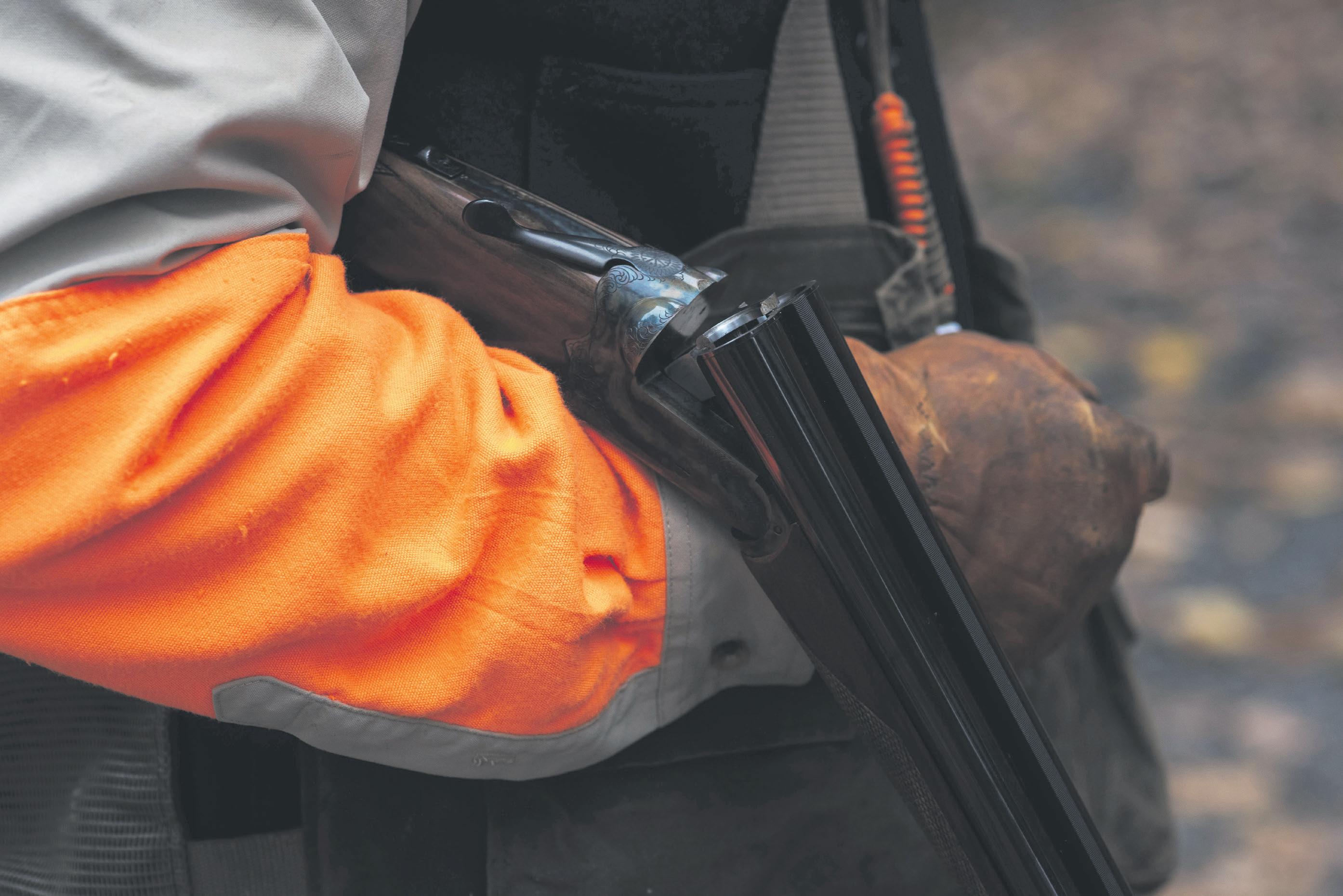
8 minute read
Rural
Stronger focus on biosecurity welcomed
NSW Farmers is backing calls from NSW Agriculture Minister Dugald Saunders to make biosecurity a stronger focus ahead of the federal election, as pests and diseases continue to threaten the multibillion-dollar agriculture sector.
Biosecurity was front of mind for Minister Saunders this week as he attended the Royal Easter Show and urged his federal Nationals counterparts to do more on the critical issue.
Matthew Madden from the NSW Farmers Biosecurity Committee said pushing for biosecurity funding was a key focus for the association, prompting several pre-budget requests for the state government.
“Over the past few years we’ve seen commitments to biosecurity that haven’t really delivered the sustainable funding required for long-term growth and security,” Mr Madden said.
“Biosecurity is a perpetual concern given the extreme cost a disease outbreak would carry, as well as the significant trade advantage Australia holds thanks to our relative disease-free status.
“At a state level, investment needs to be made in research and development to find smart and innovative solutions to threats, while at a national level we need a long-term funding model that makes those presenting a biosecurity risk pay.”
In recent years, reports on the state of biosecurity operations in Australia have highlighted the need for agencies to better respond to biosecurity risk and for adequate investment in detection systems. The discovery of two live-rooted rose plants at the Sydney Gateway Facility last year carried the risk of introducing Xylella fastidiosa, which was an incurable threat to more than 500 plant species and native plants.
A single disease outbreak could cost billions and would be fatal to the growth of Australian agriculture, Mr Madden said.
“Australia needs to be prepared with a stronger biosecurity system to fight emergent threats in a modern world,” he said.
“The recent spread of Japanese encephalitis virus to places it has never been in Australia, namely NSW and Victoria, tells us something about our changing environment and ecosystems – and we need to be prepared for that.
“We have been forewarned by Australia’s chief science agency, CSIRO, that a globalised world and a changing climate will present new biosecurity risks, and we absolutely cannot be caught flatfooted on this issue.”
NSW Farmers has asked the NSW Government to commit to: • $25 million in the next year to fund mitigation and preparedness action that ensures primary producers have the capacity to effectively prepare, respond, and recover from incursions of exotic pests and disease. • $60 million over two years to ensure that biosecurity training, testing, diagnostic tools across multiple commodity areas are both prioritised and delivered. • $2 million over two years to take a leading role in livestock traceability education, compliance, and costs.
Agricultural productivity must not be forgotten
NSW Farmers Vice President Xavier Martin says the decision to renew petroleum exploration licenses in the Liverpool Plains is a very disappointing given the agricultural productivity of the land and water in the region.
Last week the NSW Government quietly renewed coal seam gas exploration tenements owned by Santos.
Mr Martin, a grain farmer from the area, said NSW Farmers policy was that CSG posed an unacceptable and unmanageable risk to the water resources, soil and air quality, local and rural communities. amount of highly fertile, productive agricultural land in this country, and we must be very careful about how we use it,” Mr Martin said.
“Australia feeds 75 million people every year and there are increasing demands for food from our healthy plants and healthy animals.
“Once agricultural land is lost it is lost forever, and it is disappointing to see this decision leave the gate open for developments that are just not right for this area.”
Mr Martin said the fact remained the full impact of this exploration was unknown.
“We don’t know what might happen to our land and water, and what irreparable damage might be caused,” Mr Martin said.
“We need to protect the Liverpool Plains, as it is an iconic food producing region, from degradation by coal and coal seam gas development.
“If the NSW Government does not heed warnings about the risk of long-term damage to land and water resources, then it must take full responsibility and liability for any damage.”

are:
AUSVEG CEO

NSW Farmers has warned politicians to focus on outcomes, not point-scoring, as the federal election campaign heats up.
With both sides squaring off on the Murray-Darling Basin Plan, NSW Farmers Water Taskforce Chair Richard Bootle said NSW Farmers Association had clear policy that purchasing water buybacks shouldn’t recommence until the Commonwealth had made a full assessment of the: a. transparency and auditing of previous water purchases, b. impact on new purchases on the viability of group supply systems, c. impact on new purchases on irrigation dependent communities, including demographics, and d. impact on irrigated agriculture’s ability to continue to sustain and increase food production.
“Just announcing more water recovery without going into the how and why is simply not good enough, and has the potential to do real damage to the years of progress made on water management,” Mr Bootle said.
“There are ways to achieve environmental outcomes while protecting productivity and the sustainability of our regions, but it’s not by playing political hardball.”
Farmers have endured and a mouse plague since the basin plan was introduced more than a decade ago, and the sector has started growing again. This year Australian agriculture is valued at more than $80 billion, and $1 out of every $7 of export in NSW comes from the farm sector. With Australia’s food and Mr Bootle said there needed to be certainty for farmers and regional investment.
“There are real opportunities to deliver environmental outcomes to the river system without reducing production,” Mr Bootle said.
“I would call on both sides to put aside the political point scoring around who’s tougher on water, and instead build upon the opportunities in the basin plan that have been hard fought but are still yet incomplete.”
Hunting licence course now available online

The NSW Department of Primary Industries (DPI) has made it easier for hunters with the launch of the new Restricted Game Hunting Licence (R-Licence) Accreditation Course.
DPI Deputy Director General Fisheries and Hunting, Sean Sloan said making hunter education more accessible is a crucial step in ensuring hunting is conducted safely and ethically in NSW.
“In order to get licensed to hunt in over 200 NSW State forests declared and open to hunting, hunters must first successfully complete the R-Licence Accreditation Course and become a member of an Approved Hunting Organisation,” Mr Sloan said.
“The process of obtaining a licence has now been accelerated, by introducing an online option to complete the accreditation course, in addition to the current face-to-face mode of delivery.
“Having the course available online means hunters can access the course anywhere, at any time, and complete the training at their own pace.
“This is fantastic news for hunters from all over Australia who want to get licensed to hunt in NSW and improve their hunting knowledge.”
Regulated hunting generates a range of social and economic benefits of NSW. In 2020-21, it is estimated that hunting related activities generated $1,406 million in expenditure.
The new R-Licence Accreditation Course features real-life hunting scenarios and best practice methods to provide hunters with more comprehensive and relevant education about legal hunting in NSW.
“The online option brings the R-Licence Accreditation Course into the digital age with new graphics, images, animations and video tutorials,” he said.
“Additional training modules that previously needed to be completed by hunters after they have obtained their
Free trade agreement welcome news
The announcement of an interim Free Trade Agreement with India is welcome news for the Australian macadamia industry, says Jolyon Burnett, the CEO of the industry’s peak industry body, the Australian Macadamia Society (AMS).
The agreement will see a removal of import tariffs on Australian macadamias into India over the next seven years, making India a very attractive market for Australian macadamia exporters. Currently the tariff is sitting at 32%.
“We congratulate the Australian government on this historic agreement and the years of detailed negotiations that are behind it,” said Mr Burnett.
Mr Burnett said the removal of the tariff will align perfectly with the industry’s plans to develop India as one of the largest and most important markets for Australian Macadamias.
“This agreement opens the door to a potentially huge market at a time when the industry is rapidly increasing supply and actively looking for new markets.
“Eating nuts is part of the Indian way of life and with the necessary market research and trade development, India has the potential to be worth up to $100 million to the industry.”
Mr Burnett said that with support from the Australian Government through its Agricultural Trade and Market Access Cooperation (ATMAC) program, the AMS has recently completed initial market development work which has of the Indian market. R-Licence have also been incorporated into the accreditation course, to further expedite the process for newly licensed hunters.
“It is also good news for hunters wanting to hunt interstate or overseas, as the new course is approved by the International Hunter Education Association (IHEA), allowing licence holders to apply for reciprocal licensing in IHEA member states across the world.”
The new R-Licence Accreditation Course is part of the NSW Department of Primary Industries Hunter Learning, Education and Accreditation Program (LEAP).
Hunter LEAP ensures that individuals seeking to hunt on public lands are suitably educated and provides NSW Game Hunting Licence holders with access to a range of short courses and workshops to improve their skills and learn new techniques.
For more about the new course visit www.dpi. nsw.gov.au/hunting










